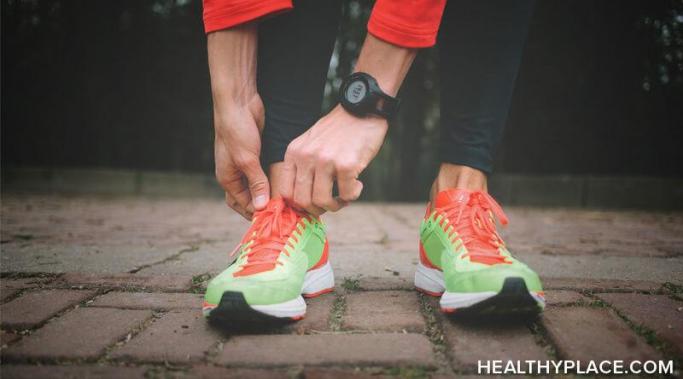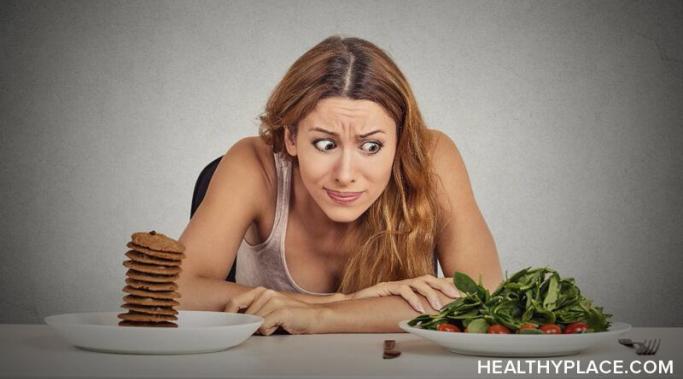Eating disorder deaths can be compared to a slow suicide. It often goes without saying, there are severe physical and psychological effects associated with an eating disorder—but are you aware that every 62 minutes, a person dies from the complications of an eating disorder? This makes an eating disorder the deadliest of any mental illness on record. The reason that an eating disorder is so harmful and potentially fatal is that it impacts both the sufferer's mind and body. If untreated, this destructive combination can turn an eating disorder into a tortuous and slow suicide attempt.
Surviving ED
If you have access to the Internet, then chances are, you're aware of the popular "fitspiration" trend, but have you considered—or worse, experienced—its influence on the spread of eating disorders? For several years, fitspiration has been gaining traction and momentum on social media. Self-appointed wellness experts are using the buzzword as a hashtag for their Instagram posts. Fitness-themed Pinterest boards are cluttered with images of men and women exercising their toned physiques, overlaid with mantras like, "Strong is the new skinny." Upon first glance, these phrases seem innocuous—progressive shifts toward strength over thinness. But the truth is, fitspiration can influence eating disorder behaviors, so it's important to examine the subliminal messages beneath the motivational words and snapshots.
Has the anxiety surrounding "fear foods" hindered your progress in eating disorder recovery? Do you feel motivated to embrace healing, but you just cannot seem to overcome the inner panic that clenches your stomach when faced with a plate of spaghetti, box of donuts, or slice of pizza? Are there categories of food you have labeled "safe" and other categories you're still terrified of biting into? If you can relate to any of these scenarios, then you've allowed fear foods to hinder your eating disorder recovery—and the quickest approach to neutralizing that fear is challenging it head-on.
The fear of weight restoration is one of the most frightening and challenging mental blocks to conquer in eating disorder (ED) recovery. When you are malnourished from starvation or binging and purging, the first step toward physical healing is to stabilize your weight in a healthier range. This can also be the scariest part of the whole eating disorder recovery process because gaining weight means surrendering that intense and desperate need for control. It means rejecting the illusion that being the "skinniest person in a room" equals success, worth or beauty. It means being forced to accept that you're more than a body, and you are lovable no matter what the scale reads. Without the buffer of weight manipulation to cower behind, you feel exposed in a way that is often uncomfortable and unfamiliar. But shedding this layer of defense is not just a life-saver—it's a turning point to freedom. Here are some practical interventions for conquering the fear of weight restoration in ED recovery.
I have a slew of insights about understanding eating disorders for family and friends, but I often don't have the language to communicate it all. I suspect that I'm not alone in this predicament. My hunch is most people with disordered eating issues struggle to attach words to their experience. Because eating disorders are complex illnesses that oppress the body, mind and spirit, they are painful to discuss. And their secretive, withdrawn nature can make people on the outside feel confused, wounded or even angered. They might perceive the eating disorder sufferer's actions as callous, apathetic, disingenuous and selfish. But while eating disorders do perpetuate this kind of behavior, it's not indicative of the person's true character. Underneath that hard, stony facade is someone desperate to feel accepted and validated. So I need understanding--understanding about eating disorders from family and friends—and if you can relate, I encourage you to use these talking points with your loved ones too.
Your eating disorder has its own personality. In fact, if you have spent any length of time under the possessive, domineering influence of an eating disorder, you know the illness can turn you into a different person altogether. You have probably felt the sensation of watching your actions as though from a distance, ashamed at the erratic behavior, yet helpless to regain control. You have likely experienced the reckless thoughts and wild emotions that breed impulsive choices and abrupt reactions. You can detect when the eating disorder hijacks your brain and all of a sudden, you are operating from a place of anxiety and fear. You are no longer, well, you. Your eating disorder personality has taken over.
Going vegan in eating disorder (ED) recovery can be helpful—or a detriment--depending on the mindset of each individual and the factors of his or her environment. There are many reasons people choose the vegan lifestyle, running the gamut from nutrition to ethics, and veganism as a standalone practice neither heals nor causes an eating disorder. So taking into account all the different variables and nuances at play, whether going vegan in ED recovery will be helpful—or harmful—is contingent on your motives for adopting a vegan diet or lifestyle, and how it manifests in your eating habits.
I know a great deal about eating disorders now, but wish I'd known more when I was younger. There is no shortage of hard truths and stark realities I wish my younger self recognized about eating disorders. Seriously—the list goes on and on and on. I was eight the first time I felt aware of disgust for my own body, and I was 13 when I started acting on that sensation. I was a wounded adolescent, raging at the world and grasping for a "fix" to narcotize the chaotic self-hatred and utter lack of control I endured on the inside. I had no language to express the hurt I was suffering and no framework to process the behaviors I felt drawn to. I could never have predicted that flirting with the notion, "I'll just lose a few pounds," would nosedive into a pattern of destruction which tyrannized me for 15 years (What Are Eating Disorders?). But in retrospect, all the hazard lights were flashing, had I only paid attention. So here's what I know about eating disorders now, but wish my younger self knew then—and what I hope to share with you if that is your struggle too.
When it comes to succeeding in eating disorder recovery, one stubborn misconception needs to be discredited—the good food versus bad food debate. Mainstream culture has propagated the idea of attaching morality to certain food groups by idealizing some and demonizing others. But this paradigm is nothing more than a fabricated social construct with destructive implications. When a food is labeled either "good" or "bad," it suggests the person who consumes that food must take on a similar virtue. But the reality is, character is not based on someone's diet. Integrity cannot be measured by asking the question, "Did you eat a salad or cheeseburger for lunch?" What you eat doesn't define you. Foods should not be forced into categories any more than humans should. In order to prioritize eating disorder recovery, it's time to stop the good food versus bad food debate.
Learning to face down your triggers in eating disorder recovery is non-negotiable. A trigger is any form of content, behavior, topic or event which exacerbates a trauma or mental illness, and today's culture is saturated with them. In a society that endorses the harmful message of ideal bodies, clean diets and extreme fitness, the pressure to cave into those triggering beliefs is enormous—and if you're susceptible to an eating disorder, that urge can feel overwhelming. Triggers in eating disorder recovery are ingrained in the broken systems of this world, so triggers can't be avoided entirely. So while it's unrealistic to pretend they don't exist, there are coping methods you can utilize to navigate triggering situations with a healthy mindset that won't risk your progress in recovery.









